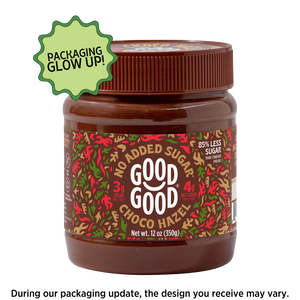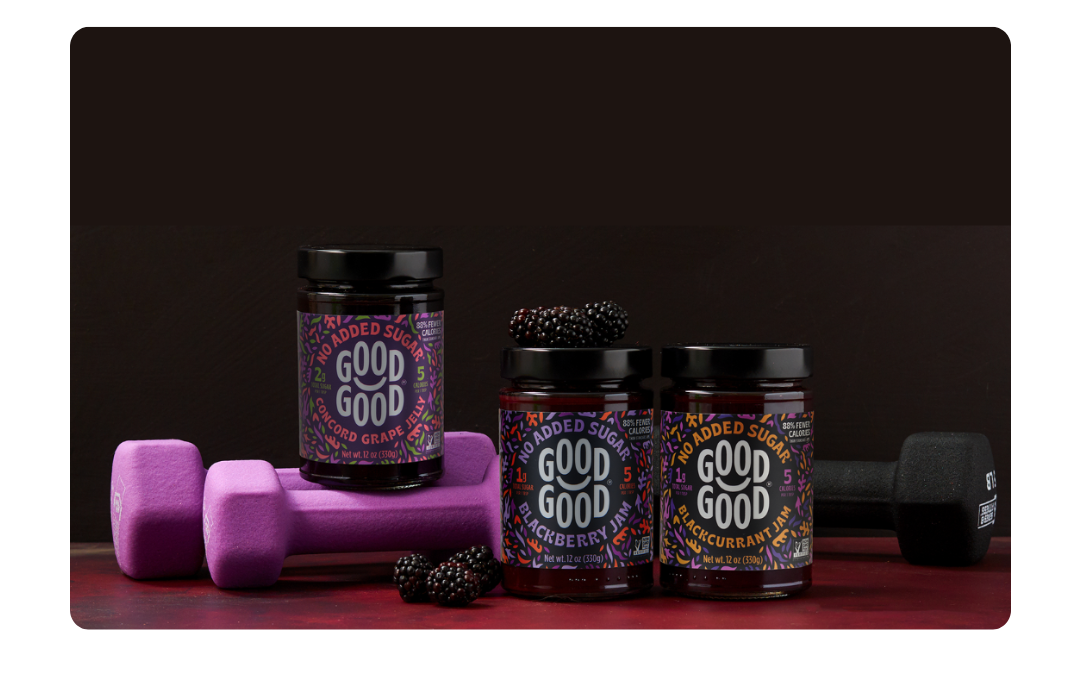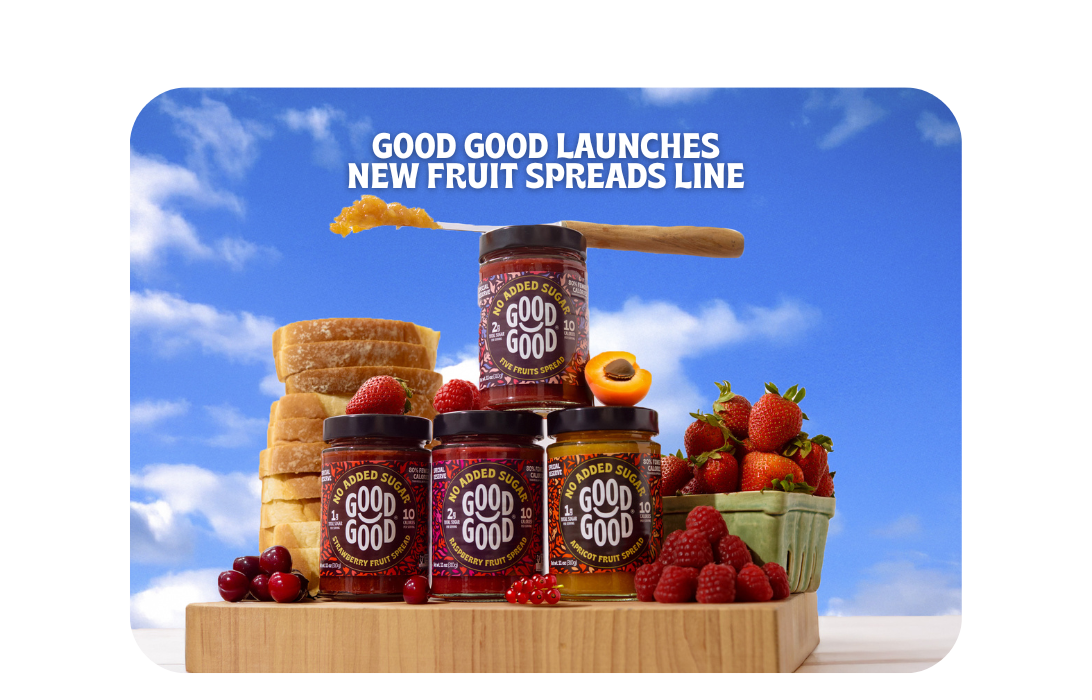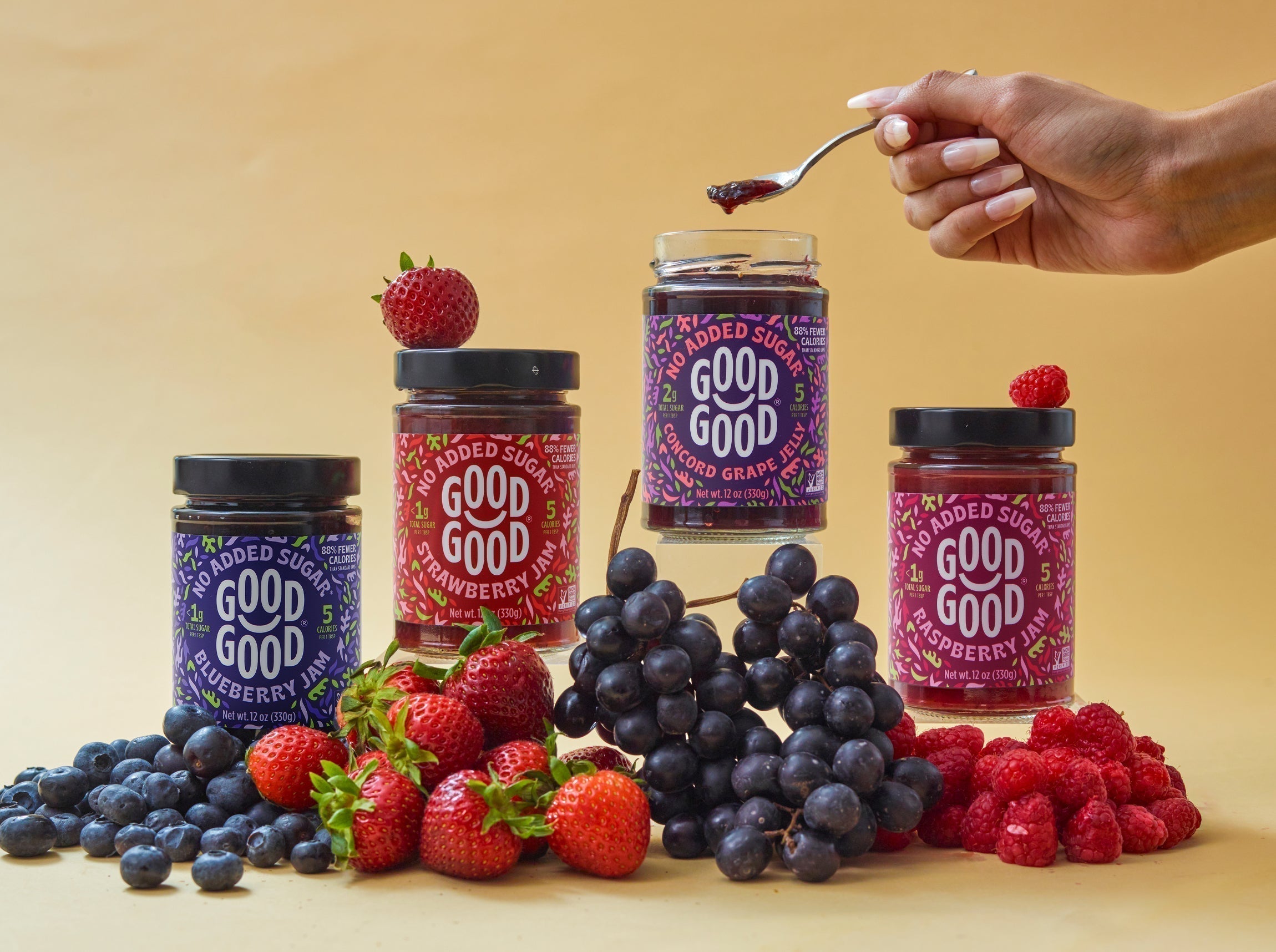In today's health-conscious world, finding the best zero calorie sweetener is key to maintaining a low-calorie diet without sacrificing sweetness.
At GOOD GOOD, we understand this balance and specialize in crafting healthier sugar substitutes with no added sugar that aligns with your wellness goals.
By choosing our expertly formulated products, you're on the right path to discovering the safest low calorie sweetener that doesn't compromise on taste.
This article will guide you through the top contenders, from stevia to aspartame, ensuring you make an informed decision.
Let's explore how we can sweeten your life - the healthy way!
What this article covers:The Best Zero Calorie Sweeteners That Are Good for Your Health
Here, we introduce the best alternatives to white sugar with zero calories that align with our GOOD GOOD commitment to wellness.
Table: Top Picks For The Best Low Calorie Sweetener
|
Sweetener |
Calorie Count Per Serving |
Health Benefits |
Uses |
|
Stevia |
|
|
|
|
Erythritol |
|
|
|
|
Monk Fruit Sweetener |
|
|
|
|
Allulose |
|
|
|
|
Sucralose |
|
|
|
|
Advantame |
|
|
|
|
Acesulfame Potassium |
|
|
|
|
Saccharin |
|
|
|
|
Neotame |
|
|
|
|
Aspartame |
|
|
|
Stevia
Stevia is a natural sweetener derived from the leaves of the Stevia rebaudiana plant. As per our expertise, it has no calories and is 200 times sweeter than sugar.
Unlike artificial sweeteners, stevia can lower blood pressure, making it an excellent choice for those monitoring their glucose levels or with diabetes.
At GOOD GOOD, our range integrates stevia in our sweet drops vanilla option to ensure you enjoy sweetness without compromising your well-being.
Erythritol
Erythritol is a sugar alcohol derived from certain fruits. It contains almost no calories and doesn't affect blood sugar or insulin levels. This makes it an excellent alternative for a low-calorie diet and sugar replacement for tea.
Our team discovered through using this product that erythritol contained in our Sweet Like Sugar sweetener also doesn't cause dental cavities and is easier on the digestive system compared to other sugar alcohols.
Monk Fruit Sweetener
Derived from monk fruit, this sweetener is another zero-calorie replacement that's quickly growing in popularity for its weight management benefits.
It's much sweeter than processed sugar but doesn't raise blood sugar levels, making it suitable for diabetics and people on a low-glycemic diet.

Allulose
Allulose is a rare sugar naturally present in small quantities in wheat, figs, and raisins. It has 70% of the sweetness of sucrose but nearly zero calories.
Our investigation demonstrated that allulose raises insulin sensitivity, making it safe for diabetics and those looking to manage their weight.
It's also a sweetener that tastes most like sugar and is one of the best granulated sugar substitutes which closely resembles the texture of processed sugar.
Sucralose
While sucralose is a synthetic sweetener, it's calorie-free and about 600 times sweeter than sugar. It doesn't affect blood sugar levels, making it a suitable option for those managing diabetes.
However, it's important to use sucralose in moderation as it can negatively affect your digestion and overall gut health.
In contrast, we at GOOD GOOD keep your wellness in mind, ensuring that our products containing sweeteners like stevia and erythritol maintain the highest quality and safety standards.
Advantame
Advantame is one of the newest sweeteners on the market. It's derived from aspartame and vanillin and is a thousand times sweeter than sugar, meaning that only a tiny amount is needed.
Our research indicates that advantame decreases the risk of obese-related conditions, such as:
- diabetes
- strokes
- heart disorders
Acesulfame Potassium
Also known as Acesulfame K or Ace-K, this calorie-free sweetener is 200 times sweeter than sugar. Acesulfame Potassium is often used in combination with other sweeteners to enhance flavor. Additionally, it's heat stable, making it suitable for cooking and baking.
At GOOD GOOD, we understand the importance of versatile sweetening options that cater to all your culinary needs without impacting your sugar intake.

Saccharin
As one of the oldest artificial sweeteners, saccharin has been used to sweeten foods and drinks without calories for over 100 years. It's also 300 to 400 times sweeter than sugar and promotes dental health.
Despite early medical concerns, extensive research conducted by the Food and Drug Administration (FDA) has shown that saccharin is safe for human consumption.
Neotame
Neotame is a no-calorie sweetener that's related to aspartame, yet it's up to 13,000 times sweeter than refined sugar.
Moreover, unlike processed sugar, neotame doesn't carry the same risk for people with phenylketonuria (PKU), the inability to effectively break down amino acid phenylalanine, which can cause brain damage.
It's also suitable for baking, as it remains stable at high temperatures.
Aspartame
Aspartame is one of the most popular artificial sweeteners. Like our sweet leaf stevia drops, it's approximately 200 times sweeter than refined sugar. Through our practical knowledge, it's used worldwide in many low-calorie, diet, and sugar-free items.
While there are misconceptions about its dangers, the World Health Organization (WHO) confirms that aspartame is safe for the general population when consumed within reason.
Choosing the right zero-calorie sweetener can significantly affect your well-being. At GOOD GOOD, we're here to support your lifestyle choices with our range of nutritious products.
Safest Low Calorie Sweetener FAQ
Is Refined Sugar Better Than Artificial Sweeteners?
As per our expertise, refined sugar is high in calories and can lead to:
- weight gain
- tooth decay
- increased blood sugar levels
While artificial sweeteners are lower in calories, they should still be consumed in moderation.
We at GOOD GOOD believe in a blended approach to sweetness, catering to people looking for robust replacements without the adverse effects of high sugar intake.
Are Artificial Sweeteners Bad For You?
While artificial sweeteners can be useful for weight management and diabetic control, excessive consumption can lead to unwanted health risks. It's important to understand that moderation is key.
We focus on offering high-quality low-calorie sweeteners like our Sweet Like Sugar range that's 100% natural and can be utilized as part of a balanced diet.
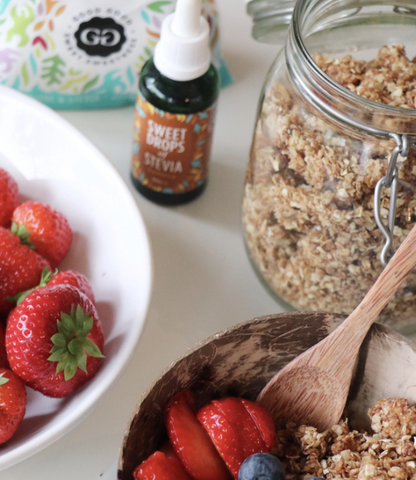
Conclusion
In summary, finding the best zero calorie sweetener is essential for maintaining a low-calorie diet without missing out on sweetness.
We've explored options from stevia to aspartame and discussed their benefits to help you make informed choices.
At GOOD GOOD, we're here to complement your wellness goals with delicious sugar substitutes and stevia flavors.
Visit us now and enjoy the sweetness without the calories in every spoonful!
If you want to learn more, why not check out these articles below:
- Is Sugar or Artificial Sweeteners Healthier
- Sugar Free Alternative to Honey
- Is Grape Jelly Gluten Free?
- Is Jelly Gluten Free?
- Is Jam Gluten Free?
- Is Orange Marmalade Gluten Free?
- Best Jelly for PB&J
- Best Grape Jelly
- Peanut Butter and Jelly Alternatives
- Red Currant Jelly Alternative
- Best Sugar Substitute
- Best Sweetener for Diabetics
- Is Stevia Healthy?
- Is Stevia Good for Diabetics?
- Is Stevia Keto?





![[title] Reforestation Donation by Dollar Donation Club sold by US GOOD GOOD®](http://goodgoodbrand.com/cdn/shop/files/DollarDonationClubShopify_1_300x.jpg?v=1712681952)
